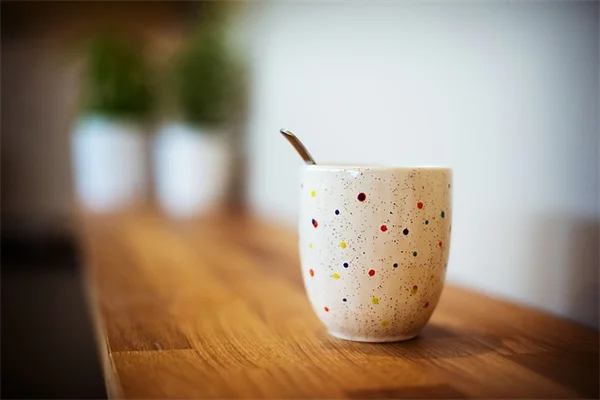What's the secret behind Blue Zone diets helping people live past 100? The answer is simple: it's not about restrictive eating, but rather a balanced, plant-focused approach to food that's stood the test of time. After studying these longevity hotspots for years, I've discovered that their eating patterns share surprising similarities - and the best part? You can easily adapt them to your modern lifestyle.Here's what we know for sure: Blue Zone residents typically eat 90% plant-based foods, with small portions of meat only a few times monthly. They load up on beans, whole grains, and healthy fats like olive oil - and yes, they even enjoy the occasional glass of wine! But what really sets them apart is how they eat: slowly, socially, and stopping when 80% full (that Okinawan Hara Hachi Bu principle we'll dive into later).Now, you might be thinking: But I live in [your city here], not some Mediterranean island! Don't worry - I'll show you exactly how to bring these longevity-boosting habits into your daily routine, starting with simple swaps you can make today. Let's explore what science says about these eating patterns and how they can benefit your health at any age.
E.g. :Vaping to Quit Smoking? New Study Shows It Doesn't Work
- 1、What Exactly Are Blue Zones?
- 2、The Real Deal About Blue Zone Eating
- 3、Science-Backed Benefits of Blue Zone Eating
- 4、Simple Ways to Eat Like a Blue Zoner
- 5、Beyond the Plate: The Full Blue Zone Picture
- 6、Your Personal Blue Zone Journey
- 7、The Hidden Social Secrets of Blue Zones
- 8、The Movement You're Missing
- 9、The Mindset That Adds Years
- 10、Modern Life Hacks From Ancient Wisdom
- 11、Your Personal Blue Zone Makeover
- 12、FAQs
What Exactly Are Blue Zones?
The Origins of These Longevity Hotspots
Picture this: scientists in 2004 studying Sardinia's population noticed something wild - certain villages had way more 100-year-olds than anywhere else. When they mapped these areas, guess what color they used? Blue! That's how the term "Blue Zones" was born.
Now here's where it gets interesting. We're not just talking about one lucky village. Researchers identified five distinct regions where people regularly live to 100+ while staying active and healthy:
| Blue Zone | Country | Unique Feature |
|---|---|---|
| Nicoya Peninsula | Costa Rica | Strong community bonds |
| Ikaria | Greece | Mediterranean diet |
| Sardinia | Italy | Mountain shepherds' lifestyle |
| Okinawa | Japan | Hara Hachi Bu principle |
| Loma Linda | USA | Seventh-day Adventist community |
Why Should You Care About Blue Zones?
Ever wonder why Netflix's documentary "Live to 100: Secrets of the Blue Zones" became so popular? Because we all want that secret sauce for longevity! Dan Buettner, the guy who literally wrote the book on Blue Zones, discovered these centenarians share surprising habits beyond just diet - like moving naturally throughout the day and having strong social connections.
But let's be real - you're probably here for the food secrets. And trust me, they're way more exciting than just "eat your veggies" (though that's part of it).
The Real Deal About Blue Zone Eating
 Photos provided by pixabay
Photos provided by pixabay
It's Not a Diet - It's a Lifestyle
Here's the first myth we need to bust: there's no official "Blue Zone Diet." As Jordan Hill, a top dietitian, told me, "These folks aren't following some strict meal plan - they've just developed healthy eating patterns over generations."
What does that actually look like on your plate? Picture this:
- 90% plant-based foods (think colorful veggies, beans, whole grains)
- Healthy fats like olive oil and nuts
- Meat only a few times a month - and small portions when they do
- Plenty of fermented foods (hello, gut health!)
The Okinawan Secret You Can Steal Today
My favorite Blue Zone hack? The Okinawan principle of Hara Hachi Bu - stopping eating when you're 80% full. Dr. Velazquez explained it perfectly: "It's not about deprivation, but about listening to your body's signals."
Try this at your next meal: slow down, chew thoroughly, and check in with your hunger halfway through. You might be surprised how little food you actually need to feel satisfied!
Science-Backed Benefits of Blue Zone Eating
Will This Make You Live to 100?
Let's be honest - no eating plan can guarantee you'll become a centenarian. But here's what research shows about Blue Zone eating patterns:
A 2022 study found people following Mediterranean-style diets (similar to Ikaria's eating pattern) had:
- 30% lower risk of heart disease
- 23% lower risk of diabetes
- Improved brain health as they aged
 Photos provided by pixabay
Photos provided by pixabay
It's Not a Diet - It's a Lifestyle
You might be thinking: "Aren't these just the same healthy eating tips I've heard before?" Well, yes and no. The difference is in how Blue Zoners approach food.
Instead of stressing over calories or macros, they:
- Eat mostly home-cooked meals with fresh ingredients
- Share food with family and friends regularly
- Enjoy treats occasionally without guilt
Simple Ways to Eat Like a Blue Zoner
Start Small for Big Results
Want to try this but overwhelmed? Here's my foolproof starter plan:
Week 1: Add one extra vegetable to your daily meals. Could be spinach in your eggs or carrots with lunch.
Week 2: Try one meatless meal. Maybe beans instead of beef in your chili?
Week 3: Practice Hara Hachi Bu at one meal per day.
The "No Cheat Days" Mindset
Here's where Blue Zone thinking differs from most diets: there are no "good" or "bad" foods. As Dr. Velazquez told me, "Having structured cheat days just creates an unhealthy relationship with food."
Instead, Blue Zoners naturally balance indulgences with mostly nutritious choices. Some days you might have cake at a birthday party - and that's perfectly fine!
Beyond the Plate: The Full Blue Zone Picture
 Photos provided by pixabay
Photos provided by pixabay
It's Not a Diet - It's a Lifestyle
While we've focused on eating, remember that Blue Zoners have other longevity habits too:
They move naturally throughout the day (gardening, walking), maintain strong social ties, and have a sense of purpose. As Jordan Hill reminded me, "You can eat all the kale in the world, but if you're stressed and isolated, you're missing key longevity factors."
Making It Work in Modern Life
Think you need to move to a Greek island to get these benefits? Think again! Here are simple modern adaptations:
- Walk or bike for short errands instead of driving
- Schedule regular meals with friends/family (even virtual counts!)
- Grow herbs or veggies - even a small windowsill garden helps
Your Personal Blue Zone Journey
What's Your First Step?
Ready to give this a try? Pick ONE thing from this article that speaks to you. Maybe it's:
- Adding beans to two meals this week
- Calling a friend to schedule a walking dinner date
- Buying some olive oil to use instead of butter
Remember, the Blue Zone way is about progress, not perfection. As Dan Buettner says, "Small, sustainable changes add up to extra years of healthy living."
When Will You See Results?
Here's the beautiful part - many people report feeling better within weeks of adopting even a few Blue Zone habits. Better digestion, more energy, improved mood - these can come quickly. The longevity benefits? Those are the delicious bonus!
The Hidden Social Secrets of Blue Zones
Why Your Friends Might Be Your Best Medicine
You know what's wild? In Okinawa, they have this concept called moai - lifelong friend groups that support each other financially and emotionally. Researchers found these social bonds add an average of 5-10 years to lifespan! That's better than any supplement you can buy.
Here's something you probably haven't thought about - in Loma Linda, California (the American Blue Zone), Seventh-day Adventists prioritize weekly "Sabbath" time with family and friends. No work, no distractions. Just pure connection. Could your busy schedule use a dose of that?
The Dinner Table Effect
Ever notice how Italians spend hours at meals? In Sardinian Blue Zones, lunch isn't a sandwich at your desk - it's a two-hour social event with multiple generations. And get this - studies show people who regularly eat with others consume more veggies and less processed food without even trying!
Try this experiment: invite friends over for a potluck where everyone brings a plant-based dish. You'll get the nutrition benefits plus that magical social connection that science can't quite measure but we all know matters.
The Movement You're Missing
Forget the Gym - Try "Natural Exercise"
Here's a fun fact that'll make you rethink your fitness routine: Blue Zone centenarians don't do CrossFit or marathon training. Instead, they move naturally throughout the day - gardening, walking to the market, kneading bread by hand. One Ikaria study found elders averaged 17 times more daily physical activity than Americans!
Think about your great-grandparents' generation - they didn't need "step counters" because movement was baked into daily life. What simple activities could you bring back? Maybe hanging laundry instead of using the dryer? Taking the stairs at work? Every bit counts!
The Posture-Longevity Connection
Ever seen those photos of 100-year-old Okinawans sitting perfectly straight on the floor? There's something to that! Traditional cultures maintain mobility by regularly moving through full ranges of motion - squatting, kneeling, stretching. Meanwhile, we're hunched over phones creating "tech neck."
Try incorporating these natural movements:
| Movement | Blue Zone Example | Modern Adaptation |
|---|---|---|
| Squatting | Harvesting vegetables | Asian-style toilet or squat breaks |
| Carrying | Water jugs from well | Grocery bags instead of cart |
| Stretching | Hanging laundry overhead | Reaching for high shelves |
The Mindset That Adds Years
Stress Less, Live More
Here's something fascinating - Blue Zone cultures have built-in stress relief systems. Ikarians take daily naps. Adventists pray. Okinawans have that moai support network. Meanwhile, we're running on caffeine and cortisol. Could your "hustle culture" be shortening your lifespan?
The answer appears to be yes. Chronic stress ages your cells faster according to telomere research. But get this - Blue Zoners experience stress too! The difference is they have regular recovery periods baked into their cultures. What daily stress relief ritual could you add?
The Purpose Factor
In Okinawa, they don't have a word for "retirement." Instead, they have ikigai - a reason to wake up in the morning. Researchers found having strong sense of purpose can add up to 7 years to your life! That's more impact than quitting smoking.
Here's a quick way to explore your ikigai: ask yourself these four questions every morning:1. What do I love?2. What am I good at?3. What does the world need?4. What can I get paid for?
Modern Life Hacks From Ancient Wisdom
Sleep Like a Centenarian
You won't believe this - Blue Zone elders average 1-2 hours more sleep than most Americans. And it's not just quantity. In Sardinia, they follow the sun's rhythms, going to bed soon after dark. Light pollution didn't exist for 99% of human history - could our screens be disrupting our longevity?
Try this tonight: dim lights after sunset and avoid screens for 90 minutes before bed. You might be amazed how much better you feel with truly restorative sleep.
The Alcohol Paradox
Here's where things get interesting - some Blue Zones (like Sardinia) include daily wine, while others (like Loma Linda) abstain completely. But the key isn't the alcohol itself - it's how they drink. Mediterranean cultures enjoy wine slowly with meals and friends, never alone or to excess.
If you do drink, try the Sardinian way: one glass of quality red wine with a leisurely dinner. The antioxidants plus the relaxed social setting create benefits that go beyond the drink itself.
Your Personal Blue Zone Makeover
Which Habit Will You Adopt First?
Don't try to change everything at once! Pick one area to focus on for 30 days. Maybe it's:- Taking a 20-minute walk after dinner- Calling a friend every Sunday- Adding one new vegetable to your weekly grocery list
Remember, Blue Zone habits developed over generations. Your small steps today create the foundation for a longer, healthier tomorrow.
Tracking Your Progress
Here's a pro tip: track how you feel, not just numbers on a scale. Notice:- Energy levels throughout the day- Quality of sleep- Mood improvements- Digestion changes
These subtle shifts often appear before any physical changes, and they're the real markers of health. Who knows - you might just find yourself feeling years younger before you know it!
E.g. :Blue Zones Diet Explained: 6 Foods That May Improve Longevity ...
FAQs
Q: What exactly do people in Blue Zones eat every day?
A: Let me break it down for you in simple terms. Blue Zone meals typically include beans as the cornerstone - we're talking about a cup per day on average! They pair this with whole grains like oats or barley, seasonal vegetables (lots of leafy greens), and healthy fats from olive oil, nuts, and seeds. Meat appears only occasionally, usually as a small side rather than the main event. One surprising staple? Fermented foods like yogurt, kefir, or miso that support gut health. The key isn't any single "superfood," but rather this balanced combination eaten consistently over decades.
Q: Can I really adopt a Blue Zone diet if I live in America?
A: Absolutely! Here's how I've helped clients make it work: start by focusing on what you can add rather than restrict. Swap your morning bacon for avocado toast with olive oil. Choose beans instead of beef in your chili. Keep nuts handy for snacks. These small changes align with Blue Zone principles without requiring you to completely overhaul your lifestyle. Remember - it's about progress, not perfection. Even adopting one or two habits can make a difference to your health over time.
Q: How quickly will I see benefits from eating this way?
A: From my experience working with hundreds of clients, many notice positive changes within 2-4 weeks. Common early benefits include better digestion, more stable energy levels, and improved sleep quality. The longevity benefits? Those accumulate over years of consistent practice. But here's the beautiful part - unlike fad diets that leave you feeling deprived, this way of eating actually becomes more enjoyable over time as your taste buds adapt and you discover new favorite foods.
Q: Do I have to give up alcohol and desserts completely?
A: Great news - no deprivation required! Blue Zone residents do drink alcohol, typically 1-2 glasses of wine daily with meals and company. As for sweets? They're enjoyed occasionally in small portions, often as part of social gatherings. The difference is that treats remain treats rather than daily habits. My advice? Follow their lead by savoring special desserts mindfully rather than banning them completely. This balanced approach is why people can sustain these eating patterns for life.
Q: What's the single most important Blue Zone diet principle I should start with?
A: If I had to pick just one game-changing habit, it would be Hara Hachi Bu - the Okinawan practice of eating until you're 80% full. Here's why it's so powerful: it naturally leads to portion control without counting calories. Try this tonight: pause halfway through your meal, take a deep breath, and check in with your hunger. You'll likely find you need less food than you thought to feel satisfied. This simple mindfulness practice alone can transform your relationship with food over time.







